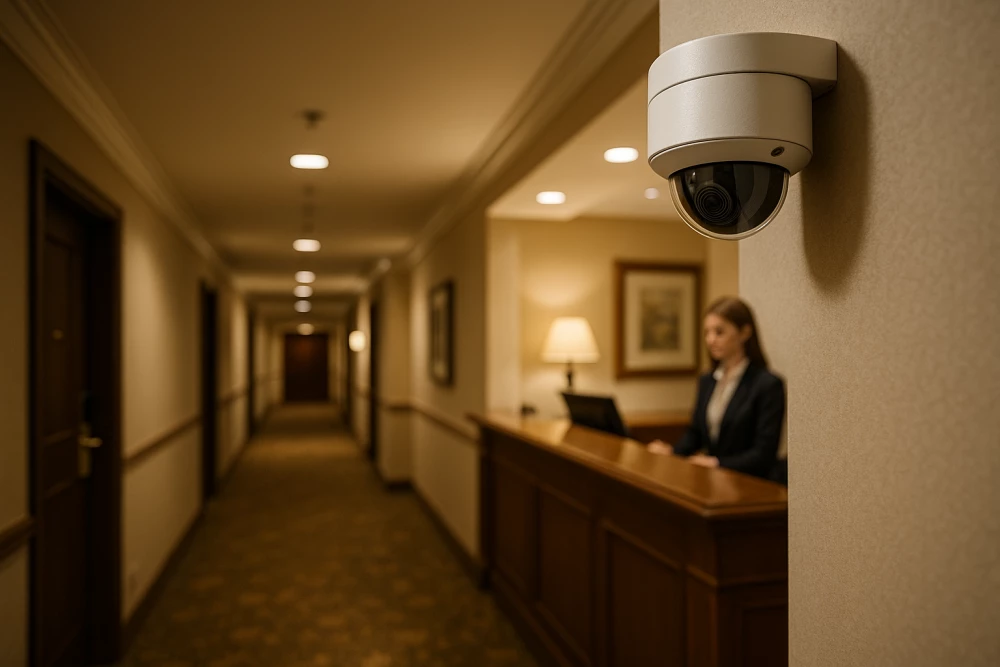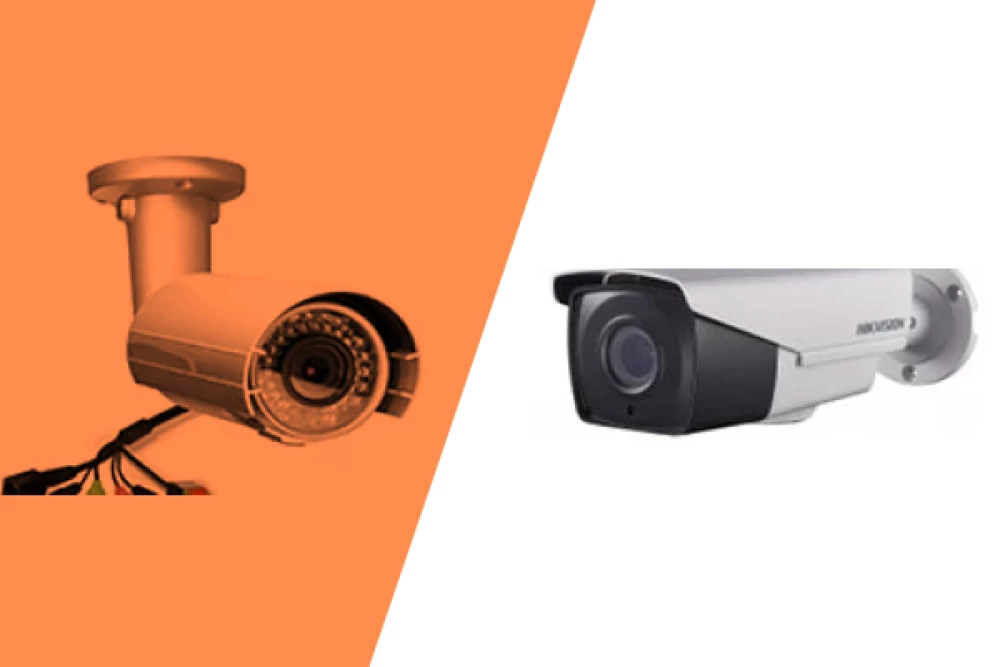Video Surveillance & Security
Video Surveillance in Hotels: Security, Compliance and Essential Best Practices

Why Video Surveillance Has Become Essential for Hotels
In a hotel environment, security relies on a combination of measures: access control, internal organization, vigilance procedures, and technological tools. Video surveillance is now at the heart of this strategy, as it helps prevent incidents, understand their origin, and, if necessary, support legal actions.
Hotels face a wide range of scenarios: managing guest flow at reception, monitoring movement in common areas, overseeing car parks, protecting staff-only areas, and preventing unauthorized access to guest floors. A well-positioned camera can significantly reduce the risks of theft, malicious acts, or unwanted behavior.
Beyond prevention, video footage plays a crucial role in case of disputes or complaints. When an incident occurs—lost luggage, damage, altercations—having clear and usable recordings allows the hotel to provide quick answers, reassure concerned guests, and reinforce the establishment’s credibility.
Regulatory Requirements: GDPR, Signage, Retention Policies and Authorized Zones
Video surveillance in hotels is strictly regulated. Establishments must combine security with privacy protection, following precise rules at every stage of the project.
The first requirement concerns guest and employee information. The hotel must clearly display that the area is under surveillance, specifying the data controller and the procedures for accessing images. GDPR regulations also require limiting surveillance to strictly necessary areas and avoiding sensitive spaces: guest rooms, staff changing rooms, restrooms, and medical areas are strictly prohibited.
Video retention periods must be controlled. Generally, footage should not be kept longer than 30 days, except in exceptional cases where an incident requires extended analysis. Images must be stored in a secure system, with access restricted to authorized individuals only, such as the hotel manager or security officer. Lastly, any video system must be declared or documented in the hotel's data processing register, in accordance with GDPR obligations.
Complying with these rules ensures not only the hotel’s legal conformity but also strengthens guest trust—providing a safe environment without infringing on privacy.
Technical and Operational Best Practices for Effective Video Surveillance
A high-performing video surveillance system does not depend solely on camera choice. It relies on a well-designed global approach aligned with the hotel's real operational needs.
From a technical standpoint, high-resolution IP cameras have become essential. They offer superior image quality, enable more accurate post-incident analysis, and integrate more easily with existing IT networks. Their placement must be strategic: reception desks, entrances and exits, elevators, car parks, delivery areas, technical rooms, and high-traffic corridors. A preliminary audit helps identify blind spots, optimize lighting, and ensure proper coverage of all sensitive areas.
System performance also relies on a suitable network infrastructure. Video streams can be heavy: an undersized network may become saturated, affecting both video surveillance and other digital services such as the guest WiFi. A balanced infrastructure includes dedicated or prioritized network paths, PoE-compatible switches, sufficient bandwidth, and secure storage with regular monitoring.
Finally, an efficient video surveillance system must be supported by operational follow-up. Preventive maintenance, regular camera checks, and firmware updates are essential to ensure long-term reliability. Working with a specialized partner enables continuous supervision and rapid response in case of issues, strengthening the hotel’s overall security posture.
MAG.
Wi-Fi & Network
Cybersecurity & Backup
Video Surveillance & Security
Consulting
IT Managed Services
Video Surveillance & Security

Video Surveillance & Security
IP Cameras vs Analog Cameras: Which Solution Should You ...
Analog Cameras: A Still-Viable Technology, but with Clear Limitations Analog systems rely on ...
+
+

Video Surveillance & Security
How to Size a Video Surveillance System: Resolution, Camera ...
Choosing the Right Resolution: Detail, Identification, and Bandwidth Constraints Resolution is the ...
+
+
Your hotel deserves IT excellence
Let's discuss your challenges, whether you're in the hospitality sector or an SME.